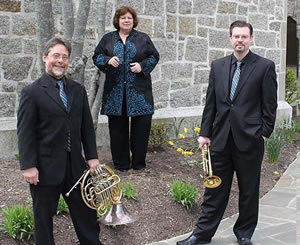While it might be springtime for Mirandy in Raleigh Little Theatre’s charming children’s musical Mirandy and Brother Wind, for the rest of us winter is quickly approaching. But as Grandmama Beasley tells us, “Winter means family.” In other words, without much else to do besides staying in or going someplace warm, we might as well get comfortable with the ones we love. Raleigh Little Theatre provides a fun way to gather around the campfire, based on the award-winning picture book Mirandy and Brother Wind by Patricia McKissack. And while it’s a little short on time (only about 55 minutes) and plot for older kids, this is a great outing for younger ones.
We’re first introduced to Mirandy’s world by the sound of chirping birds and spring winds, building the ambiance of an idyllic, and perhaps even magical, South. And while magical, Mirandy and Brother Wind also succeeds at being a history lesson. Taking place only 40 years after the end of slavery, Mirandy tells the story of an African-American family at the turn of the century preparing for the annual Cake Walk Competition – an African-American dance competition inspired by plantation slave get-togethers. The young Mirandy (Kwamea Wilkerson) leads a blissful life with her family, but the theme of freedom and slavery is never too far off, and we’re reminded often what a fragile and precious thing freedom can be. Mirandy wants to capture the mythical Brother Wind so she can force him to be her dance partner in the competition. But Grandmama Beasley (played with warmth and a mothering charm by Janice Laurore) uses the opportunity to teach Mirandy that it wasn’t too long ago that their family would have been “shackled” and made to do the bidding of others. So Mirandy has to decide if it’s worth winning a competition if it means using someone else as a tool to do it.
Evocative and folksy choreography by LD Burris successfully uses the half-thrust theater space of the Gaddy-Goodwin Teaching Theatre, a difficult space for a musical for sure. While not much of a talker, Keon Rahzeem Mitchell takes over the stage when he tumbles in as Brother Wind, performing wonderfully staged twirls and swirls evoking the power of the wind. Kwemea S. Wilkerson is perfectly suited for children’s theatre and was wonderfully charming as Mirandy with a big broad smile and lots of emoting, and a killer voice to boot. Emelia Me-Me Cowans doubles as Ma’ Dear and Miss Poinsettia and performed both with nuance. Cowans was fair yet firm as Mirandy’s mother, and then quickly turned otherworldly and supernatural as the “conjuring woman” Poinsettia, who Mirandy goes to looking for a spell to capture the wind.
Michael J Bobbit and John L. Cornelius’ musical score is never overly simple for adults or complicated for young ones. The score seems to combine early jazz, slave works songs, and simple childhood rhymes to create a fun and historical musical composition. Unlike many other examples of children’s theatre, however, there wasn’t a lot of opportunity for singing along or audience participation. The music did keep the majority of the three-to-seven-year-olds captivated and even dancing along, but it would have been nice to have seen a little more active engagement.
Jonice Sarrat’s scenic design gives the feeling of a storybook come to life with bushes and trees that look like paper cut outs. The back wall features a recreation of a page from the book, watercolor style and all, but it, unfortunately, seems almost tucked away in the corner and feels too far out of sight to give much effect. Stevan Dupor’s cool and effective lighting design expands the storybook world by creating swirling winds and even a starry night. Dupor’s design is most effective when highlighting moments of magical realism, as when Brother Wind comes rushing in to play mischief.
Hollywood, it seems, has ample distractions this fall/winter season for the family, but what Raleigh Little Theatre provides is a fun and thoughtful introduction to musical theatre with a hidden history lesson just simple enough for children to grasp. And it may even help inspire a trip to the local library to check out more books for story-time.
Mirandy and Brother Wind continues through Sunday, November 16. For more details on this production, please view the sidebar.











